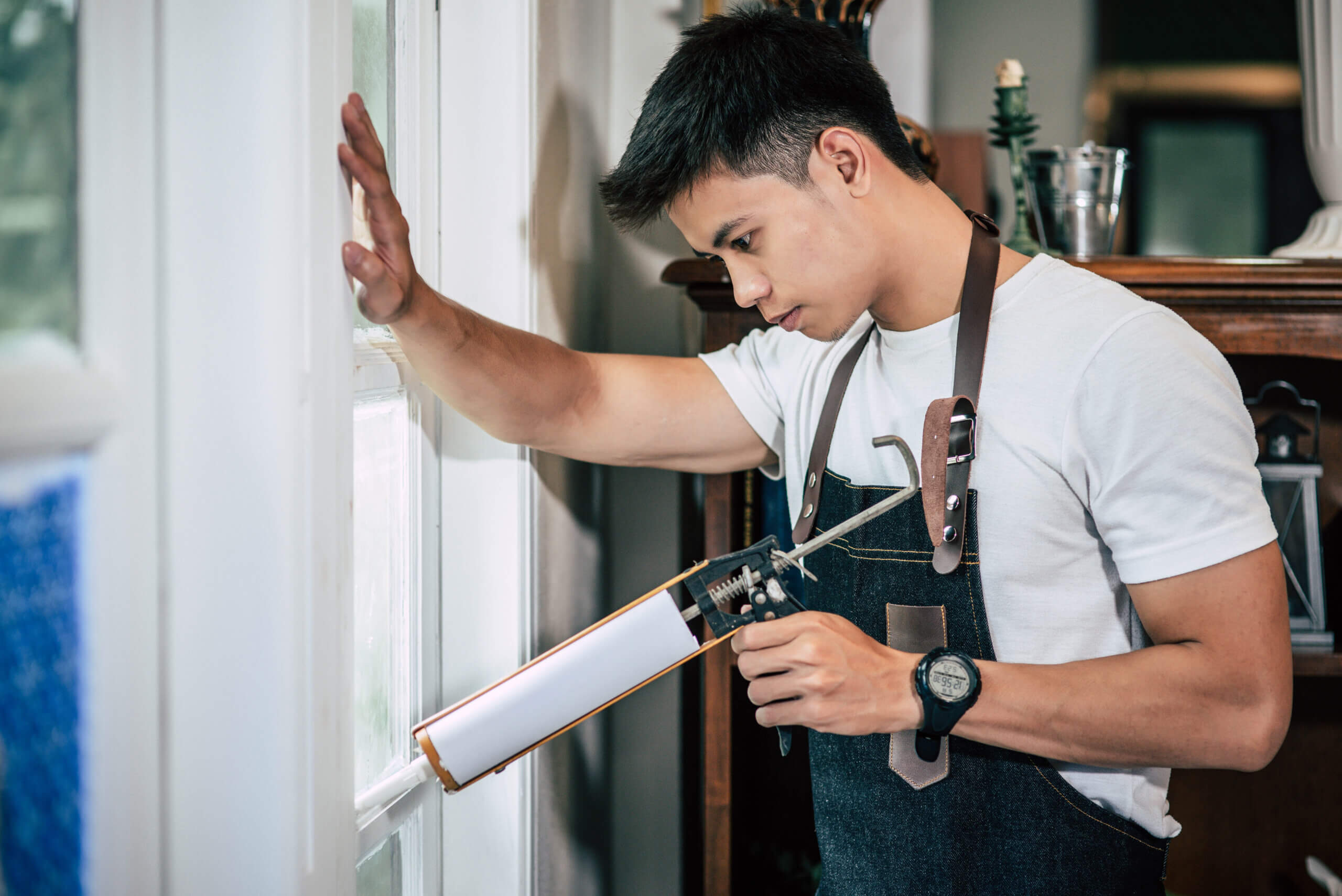
Winter Household Maintenance Tips for Colorado Residents
As winter settles in, it’s essential for our Homeowners to prepare their homes for the colder months. The freezing temperatures, snowstorms and dry air can take a toll on your home. To help you navigate the winter season, we’ve put together a list of maintenance tips to keep your home cozy, safe, and in top condition.
- Check your Exterior Windows and Doors.
As you live in your home, the caulking between the window frame and the drywall may shrink and/or crack. If this condition exists, as part of a regular homeowner maintenance routine, we recommend recaulking these areas. It is also a good time to check the threshold of the exterior door. If you can see daylight under the bottom of the door, we recommend that you adjust the threshold by loosening the screws along the top of the threshold. This will raise the threshold up and create a tighter seal at the bottom of the door and help to keep out the cold air. Please remember that the entry doors are built to maintain proper seal (with the threshold properly adjusted) and are designed to prevent water leaks during a steady 15-minute rain with sustained winds at 25 mph. If the rain duration is longer or the wind is higher, you could experience some seepage of air, water, or even a little snow around the door. - Maintain your Heating System
A well-maintained heating system is very important. We recommend scheduling a professional inspection and maintenance for your furnace to ensure that it is functioning as efficiently as possible. We recommend changing out your furnace filters every 30 days to maintain good airflow through the system and improve indoor air quality. - Protect Your Pipes
Frozen pipes can lead to damage and costly repairs. For energy efficiency it is recommended to wrap any exposed pipes with insulation, whether in the basement, mechanical room, or water meter room. It is extremely important to make sure that you keep all hoses disconnected from the hose bibs, this is one of the most common causes of freeze breaks, and the most preventable. Disconnecting the hoses allows any water left in the hose bib that could potentially freeze, to drain out once the hose bib is shut off. If the hose bib does freeze, it typically won’t show up until the next time you use the hose bib, and water can leak into the house because of the hose bib freezing. If you’re leaving your home for an extended period, it may be a good idea to shut the water off at the main shut off valve in the house and open up the faucets to drain water out of the pipes. - Clear Snow and Ice and Protect Your Concrete
With the Colorado snowfalls, it is crucial to keep your driveways and walkways clear of snow and ice. This is for your safety and for the longevity of your concrete. We recommend using a snow shovel, or snowblower to remove the snow promptly to help avoid snow and ice buildup. This is especially important for north facing houses as the snow takes significantly longer to melt and ice to thaw.If ice does build up, we recommend using sand or kitty litter or something similar that will provide traction on those areas and will not damage your concrete as ice melt products can do. Ice melt products along with the deicing chemicals used on the roads can cause damage to the finish of your garage and driveway and can significantly reduce the useful life of this concrete. We recommend using a concrete sealant on your all of your exterior concrete, especially your driveway and garage and sweeping out any of the sand and deicer that accumulates in the areas where cars are parked to get the chemicals off the concrete as soon as possible. We also recommend sealing the control joints in the concrete with a quality concrete sealant to prevent any water from getting underneath the concrete where it can freeze and expand and cause damage to the concrete. - Maintain Your Roof and Gutters and Downspouts
Regularly inspect your roof for any signs of damage or leaks. Remove debris from gutters and downspouts to prevent ice dams and water backups. Keep downspouts as clear as possible to allow the water to drain out and prevent ice dams and possible freeze damage. - Monitor Indoor Humidity Levels
Colorado winter air tends to be very dry, which can lead to discomfort, and issues like dry skin and static electricity. Some people use a humidifier (room humidifiers or whole house humidifiers) to maintain a comfortable indoor humidity level, ideally between 30% and 40%. As every home is a little bit different, it is important to monitor the humidity levels and adjust accordingly to help prevent excess moisture and condensation.
By following the winter household maintenance tips, you can help to ensure that Your Home remains cozy, safe, and well maintained throughout the winter season. Remember to prioritize safety, energy efficiency, and the overall well-being of your home. Stay warm and enjoy the winter in the comfort of your well-prepared home.
Disclaimer: The information provided in this blog is for informational purposes only and should not be considered as professional advice. For specific concerns or issues related to your home consult with a qualified professional or contractor